Customer relationship management is indispensable for businesses of all scales and types. It can help enterprises earn credibility and leverage it to increase profits. However, to accomplish this, it is important to keep CRM data clean and well-organized.
Every business collects and stores customer data for future reference. This data can be accessed by various business divisions, including sales, marketing, and customer support, to enhance experiences. CRM provides an easy platform for collating and managing this data.
Well-organized data can drive meaningful conversations with prospects and customers. This, in turn, can boost conversion rate and customer retention. However, with time, errors or inconsistencies arise in the data, rendering it useless.
CRM data must be monitored to ensure that it remains relevant and useful. This requires regular reviews, stakeholders’ involvement, and a maintenance schedule.
Discover the 10 best practices to keep CRM data clean and consistent. These tips can empower you to make the most out of the available data.
Keeping CRM Data Clean
Strong customer engagement contributes to an empowered brand image. CRM works as a storehouse of information for customer data which can be leveraged for improved interactions. It can be used to share data across the organization and enhance communication with clients.
Sounds pretty straightforward?
Well, there is a catch to this.
“CRM data can quickly go obsolete if you do not pay enough attention. And a bloated database is of no use to your business.”
It can take up a lot of time for team members to find the correct information, leading to inefficiencies in your business processes. This means that you must set up a regular cleaning process that keeps data up to date and reliable.
But what makes the best contact database, and how to build one for your business?
In simple terms, a CRM database devoid of inconsistencies and errors can be termed clean and healthy. It consists of all the required information of clients and is free of any inactive contacts.
Unorganized customer information is as good as non-existent.
Therefore, you need a well-defined strategy to clean your CRM database and keep it organized.
Before we get into details about the various CRM practices you can employ to clean the data, let’s understand why it is so important.
Why is it Essential?
Strong customer relationships can only be built with access to relevant customer data. Essentially, your relationships can only be as strong and efficient as your contact data management is. Therefore, you must continuously improve your database and keep it up-to-date. While this may seem burdensome and time-consuming, it does offer a broad range of benefits.
There are several reasons why the data needs to be regularly updated. The contact records currently present in your database may change some of their details with time. This could include changing phone numbers, email addresses, job titles, location, etc.
If you do not regularly check and maintain your customer data, chances are that you may be wasting time and resources engaging with the wrong contacts or delivering information to invalid addresses.
As a result, your message is not relayed to the right audience, leading to a drop in the effectiveness of your marketing efforts.
To keep your marketing numbers intact and your brand image consistent, you need to keep CRM data clean. While it is a time-intensive process, you can get considerable benefits from CRM data cleansing.
Some of these benefits are listed below:
Easy Access to Data:
The most significant advantage of keeping CRM data clean is that it makes it easier for your team to access information at the right time. Since only the most relevant data is stored in the system, it saves time that goes into searching for relevant data. Team members can easily pull up the information they require without having to dig through the records for the information they need.
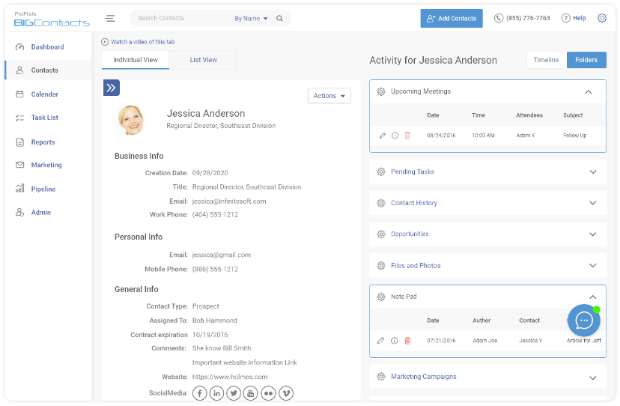
Organizational Productivity:
It boosts organizational productivity since updated data can be shared with any business department. All the information is updated and available universally. This aids collaboration and keeps everyone on the same page. Additionally, with regular CRM maintenance, obsolete data is removed from the system, which further contributes to the enhanced efficiency of business operations.
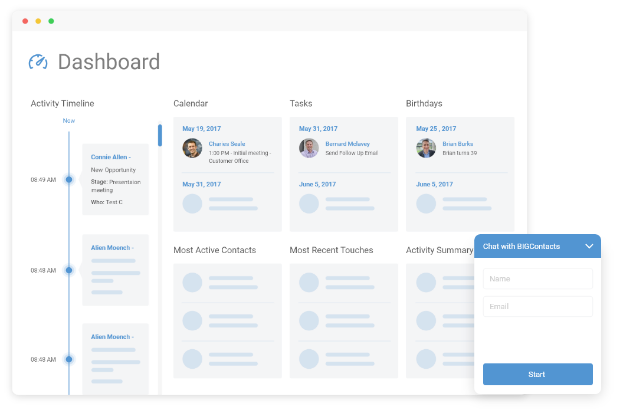
Better Business Insights:
Since the data is clean, reports are more accurate and reliable. This provides better business insights and paves the way for improved forecasts. Business owners can make more informed decisions with accurate data available at their fingertips. They can set achievable goals and track their progress in real time.
Improved Activity Tracking:
With improved data management, it becomes easier to track and meet important deadlines. This ensures that profitable opportunities are not missed. You can easily prioritize high-value activities and get them done on time with access to the correct information.
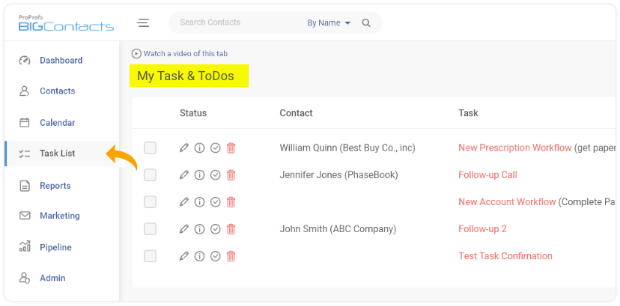
Enhanced Marketing:
Not cleaning CRM data can also impact the effectiveness of your marketing campaigns. This is because a lot of time can get wasted sending emails to incorrect addresses or chasing after leads that are not suitable for your business. Clean CRM data can also help you identify where the best leads come from, allowing you to allocate marketing resources more effectively. It can help you optimize your email marketing efforts and convert leads more effectively.
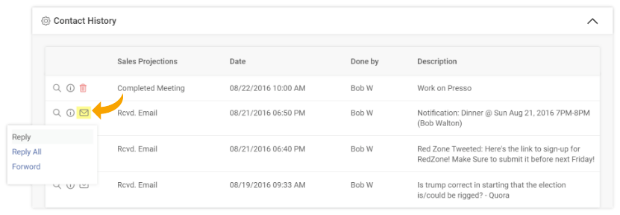
Maintaining CRM Database
74% of CRM users report better accessibility to user data with the implementation of a CRM system.
This helps them access relevant customer data easily and utilize it to engage in more meaningful and personalized interactions with clients. This, in turn, translates into an improved bottom line and better retention.
However, to achieve this, you must maintain your data efficiently. Irrespective of the scale or industry, maintaining a CRM database and keeping it updated should be a top priority for all businesses.
Having a routine maintenance system can help achieve consistent results and keep things on track at all times. This can ensure that the data stored in the CRM system is updated, accurate, and relevant for the organization.
Once you set up the groundwork for the clean-ups, it will be easy to carry out routine data checks moving forward. Therefore, the first check has to be thorough. After you have checked and cleaned your CRM data properly, you must establish a maintenance schedule and document the process for future use.
Regular maintenance can save you from the trouble of carrying out intense checks on your data every time you review it. Continuously striving to enhance the CRM data can boost its productivity and help you utilize it more efficiently.
Here are the 7 Best Ways to Maintain Your CRM System Database:
1. Make Use of Reports:
Run reports routinely to identify outdated or unqualified contacts. Pull reports with relevant information to identify gaps, missing data, or duplicates.
With better visibility into the data stored in your CRM system, you can analyze ways to improve the storage.
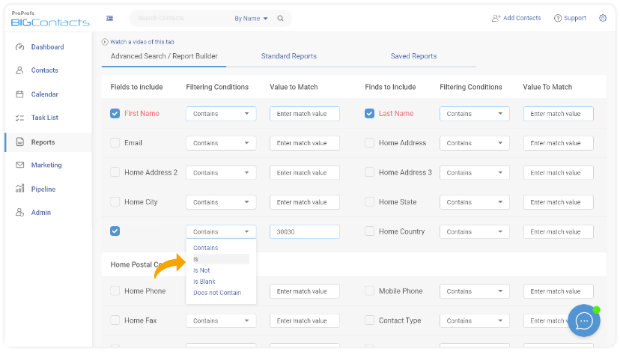
2. Communicate With Contacts:
Seek feedback from contacts to identify if they are still interested in receiving your emails. Sending emails repeatedly to prospects that are no longer interested in your business can do more harm than good.
To preserve your company’s reputation and not come across as too obtrusive, you must seek feedback from your contacts on whether they wish to receive the emails in the future.
3. Remove Dead Leads:
While it may be tempting to keep leads in your customer relationship database for as long as you can, it is best to let go of unresponsive contacts that are of no use to your sales team.
This can make your lead management data more relevant and productive for the sales team. Sales executives can access data related to high-value prospects and pay more attention to them. This can help them meet their targets effortlessly by closing more sales.
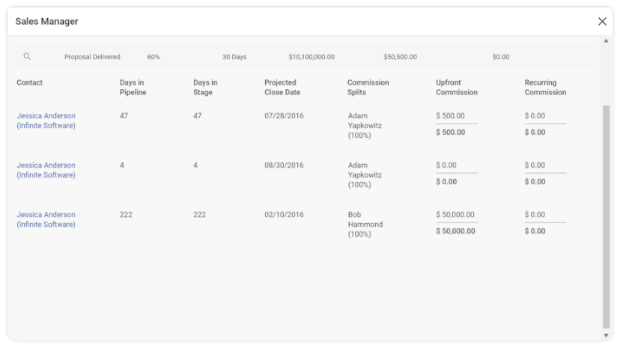
4. Foster Collaboration:
Involve multiple business departments in the clean-up. With different business divisions being in charge of different data fields, it can become easier to keep the overall data free of errors.
Encourage your team members to utilize the CRM more efficiently by entering data properly, avoiding duplicates, and conducting regular reviews.
5. Focus on Formatting:
Fix the formatting for your database and keep it consistent throughout the system. Standardizing fonts, appropriate capitalization, etc., can help you come across as a business that pays attention to even the smallest details.
While it may seem like a minor error, incorrect formatting can hamper the effectiveness of data stored in the CRM system. Make sure that you follow consistent formatting across the organization.
6. Define Roles & Responsibilities:
Create custom user roles and permissions to determine the level of access each team member gets for the data stored in the CRM database system.
With complete control and visibility over data accessibility for each team member, you can bring more accountability to the maintenance process.
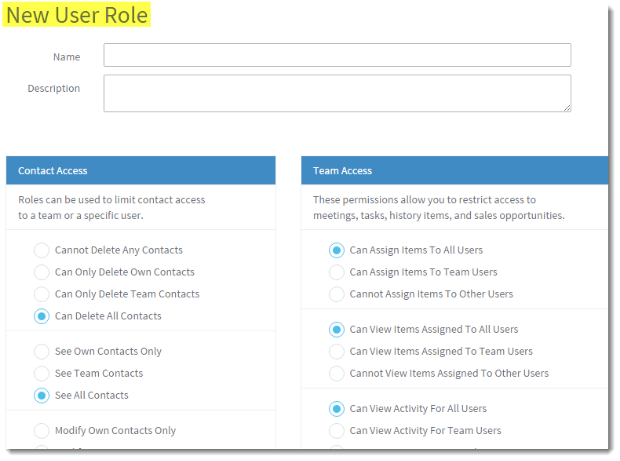
7. Import Data Effectively:
If you are importing data into the CRM, make sure it is clean and aligns with the existing data fields.
Establish a consistent format and process for importing data to keep it aligned with your existing storage methodologies.

It is important to note that CRM data cleaning is not a one-off task.
Changes in customer data occur frequently, and therefore, you must conduct routine check-ins to ensure up-to-date data. Contacts may change their details or leave the business entirely. CRM clean-ups can help update such contact records and keep the database current.
Additionally, you can opt for a powerful customer relationship management tool with automated deduplication features such as BIGContacts. This can ensure that no duplicates crowd the database and the users are alerted about existing similar contacts.
CRM Data Management Best Practices
Keeping CRM data clean can help you make the most out of it and utilize it for improved customer interactions.
Your business’s reputation can take a hit if you do not focus on keeping your CRM data clean and updated. Additionally, it can result in missed opportunities.
Well-maintained and regularly updated CRM data can provide relevant insights into your customer base. It can help your sales and marketing teams identify interested prospects and deliver more relevant content to them. It can also help demarcate leads that are no longer relevant and should be dropped from your mailing list.
Proper maintenance is an integral part of CRM strategy.
There are various practices that you can employ to keep CRM data clean and well-organized. Some of the best CRM practices for data management include:
Be Aware of Usability:
For efficient CRM data clean-up, you must have a clear understanding of how your business utilizes that data. Know what’s important to your business.
This can help you get rid of information that does not carry any relevance for you and is being stored unnecessarily.
Seek feedback from various stakeholders to identify which information you should include in your database. Knowing where your leads come from and what information they must provide can help you manage CRM data more effectively.
Optimize Data Collection:
Pay attention to how the data is being captured and stored.
32% of sales representatives have to spend an hour of their day on manual data entry.
Therefore, you need a CRM tool with automated data entry for improved data collection. This can contribute to a cleaner contact information database.
Clearly defining how and what data you wish to collect can prevent unnecessary information from entering your CRM system.
Streamlining data entry by defining clear rules can improve CRM management for your business. Optimize your lead forms to collect valid email addresses, contact numbers, and other important information that you require. This can keep the lead forms short and uncomplicated, encouraging more prospects to provide essential contact information. With several unnecessary fields in your contact forms, prospects are more likely to skip filling their information out at all.
You can also include various data validators in your lead generation forms to ensure that no spam or incorrect information enters the CRM system. This can prevent bots from spamming your CRM database with irrelevant information.
Delete Unnecessary Data:
The more decluttered your CRM is, the more effectively you will be able to utilize it.
Whether it’s old emails or reporting templates, get rid of everything that you no longer use.
Carry out a thorough check of what you need and delete all the information that does not carry value for your business anymore.
There may be contacts in your database that you do not have the contact information for. These contacts are of no utility to your business. Look for such contacts and update their information or remove them if you cannot find their contact details.
All the leads in your CRM system that are no longer responsive and are clogging the system should be removed. This can help sales representatives focus more attention on leads that have the potential to convert.
Create a Maintenance Schedule:
A clearly defined cleaning strategy can help keep CRM data clean and updated.
Set up monthly or quarterly reviews based on your workload to keep your database updated and error-free. Having a proper process in place can make maintenance easier for your team, allowing you to ensure the accuracy of your data.
In the absence of a regular maintenance plan, the CRM data can become inaccurate and outdated. Regular audits of CRM and contact organizer software data can help you analyze how to clean and maintain it. It can maintain up-to-date contact data and find any gaps in the data stored in your system. You can set up automated reminders for reviewing data using the CRM tool to ensure that clean-ups are performed at the right time.
Scan for Duplicates:
Duplicates or repeat data entries can put the integrity of your data at risk and hamper its performance. Therefore, getting rid of them is one of the most critical steps of cleaning CRM data.
Duplicates may enter your database due to various reasons. These could include not checking the existing records before adding a new contact, a current contact entering new information, or contact forms filled multiple times by the same person.
This leads to information getting scattered across multiple records, making it difficult for team members to access them at the right time.
These duplicates have to be removed in order to keep the data clean and consistent. You can also set up the automatic merging of the duplicates with existing records to make your database more efficient.

Use the Right Fields:
It is challenging to access the correct information when multiple fields store similar or unwanted information.
Pay attention to the data fields that are present in your CRM system.
Do you use all of them?
Certain fields may likely have been set up for a specific purpose and are no longer required. Since these fields are not in use anymore, it is best to get rid of them to optimize data storage for your business.
It is also possible that multiple fields may overlap and might be storing similar data. Merging such fields can optimize your contact records further.
Include only the most critical data fields and mark them as mandatory to collect the right information for incoming leads.
Offer CRM Training & Documentation:
To ensure that data remains clutter-free and usable, everyone who has access to it must keep it well-updated.
You should offer proper training and documentation for the CRM to help everyone use it without any confusion. Employees should know which fields are mandatory, how to create custom data fields, and various other strategies to keep customer data well-organized.
With clear guidelines and proper training on how to use the CRM system, you can minimize the errors in your database. You must also provide adequate documentation for employees so that they can refer to it anytime they need it.
Encourage everyone in your organization to participate in the “cleaning” process. By fostering the mindset that keeping the CRM data clean is everyone’s responsibility, you can ensure that inaccurate data does not enter your CRM system, making regular maintenance easier.
Run Reports:
Use advanced reporting to identify possible gaps or inconsistencies in your data management. It can help you track engagement and eliminate unresponsive contact records from your database. Pull data from your CRM to identify contacts that haven’t engaged with your business for a long duration. This can save you from repeatedly sending emails to contacts that aren’t interested in your business.
Reports can also help monitor the performance of email campaigns. This information can be utilized to find out contacts for which emails bounce, helping you identify invalid addresses and remove such contacts from your records.
Have a Dedicated Data Manager:
If possible, assign a dedicated professional to look after your CRM data maintenance.
While you must ensure that everyone does their part in maintaining the CRM data’s integrity, it can also help to hire professional help.
A dedicated CRM manager can focus on various aspects of CRM data clean-up to ensure that things remain on track. Such a professional can monitor how the data is entering the CRM system, which data fields are being used, and whether any duplicates are stored in the system. This can also help identify any missing data from the CRM system and remove dead leads crowding the system. Having a dedicated data manager to oversee CRM clean-up can boost accountability and contribute to more efficient management.
Stay Consistent:
Consistency is key to keeping your CRM data well-organized and secure.
Ensure that you follow a consistent clean-up strategy for updating CRM data. This should include a regular maintenance schedule, proper training for team members, and standardized processes for CRM cleaning.
To keep your relationships strong, you must continue delivering top-notch services to your customers. This requires regularly updating your database with any possible changes in customer information. Make sure that you realize the CRM data clean-up is not a one-time job. Rather, it’s an ongoing process.
Encourage this mindset in your team members and help them understand the significance of keeping CRM data well-updated at all times. With a well-defined cleaning strategy, you can enhance your contact management and leverage it for increased profits.
Enhance Profitability With CRM Data Management!
Decluttering your CRM database can empower your customer relationships. It can help save time, conserve resources, and utilize data more efficiently.
While it may seem daunting, you can easily keep CRM data clean by setting clear expectations and having a consistent routine for your team. With a clear understanding of what belongs in the CRM and what does not, team members can easily remove unnecessary data.
Applying the customer relationship management best practices mentioned above can improve the productivity of your CRM system and accelerate your organization’s growth. To further enhance your maintenance effort, create a proper schedule. Additionally, offer training sessions and documentation to help everyone get involved.
You can also benefit from choosing an intelligent CRM tool such as BIGContacts that offers deduplication features and automates various tasks.
Invest in the right tool and include regular clean-ups in your CRM strategy to drive stronger relationships.
FREE. All Features. FOREVER!
Try our Forever FREE account with all premium features!






